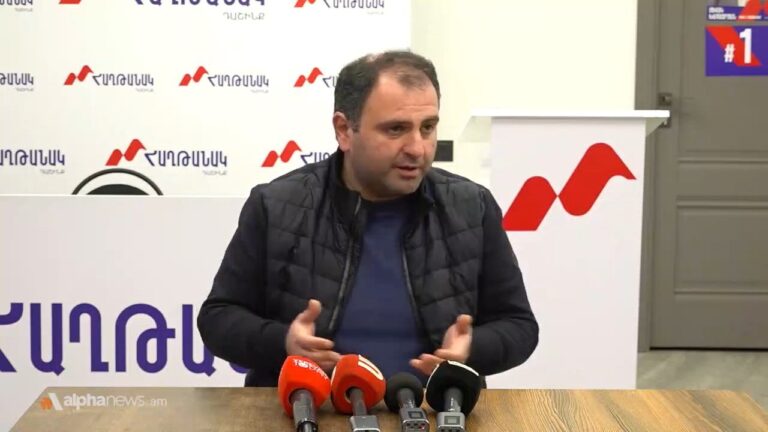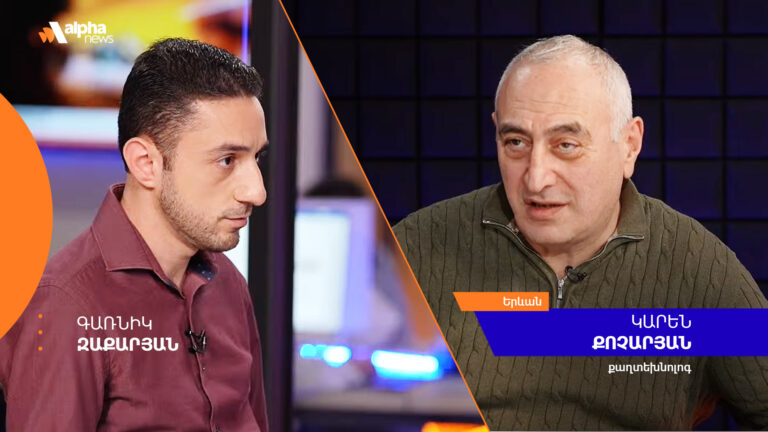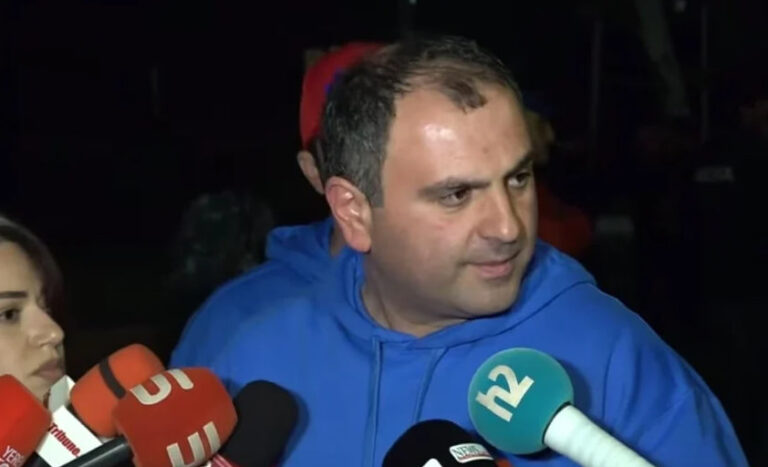‘Hungry and thirsty, we reached Kornidzor after a 36-hour drive’: Witnesses of Artsakh exodus #2
October 13 2023, 14:42
Merine Harutyunyan, 37, with her five children and her husband, who was held captive, has already lost her second home in Artsakh. The 44-day war deprived Merine’s family of their home in Shushi, and three years later they lost their home in Stepanakert.
Merine and her five minor children left for Armenia during the 44-day war for security reasons, but after the war, she decided to return to Artsakh. The husband was held captive at that time, and the government bought a house for them in Stepanakert. Shortly after, her husband returned from Baku, but with mental health problems.
Merine and her children started to settle into their new house and grow a garden, not even thinking that it was possible to lose it as well.
Now, when she has lost not only her home but also Artsakh, Merine does not want to build a new house. She has lost interest in her life. She says, I will live in the present; I don’t want to think about the future.
“I no longer have any dreams or expectations from life. I don’t think about anything anymore; I fear the same thing will happen again. I have no confidence in the future. I will live in the present, but what will happen tomorrow, no one knows. The Turks’ problem is Armenians. Wherever Armenians go, they will always be in trouble,” says Merine.
After moving to Armenia, Merine, with her sister and other relatives—20 people—have settled in the house of an acquaintance in Yerevan; now they live separately.
Merine has found an apartment for rent in one of the administrative districts of the capital. Now she is thinking about enrolling her children in school and then finding a job.
“We have to get by with the money and the aid provided by the state. We are thankful that at least they help with food, so we don’t spend money on it,” says Merine.
Leaving Stepanakert reminds Merine of hell. She drove the car herself and took her family out of Artsakh.
“Since my husband had mental health problems, I felt like the man of the house. I did everything. At the time, I reached Askeran on foot and stood in line for gas so that I could take my children out. I drove the car for 36 hours, hungry, thirsty, without sleep, and finally made it to Armenia. They stopped us at one of the Azerbaijani checkpoints; they took my husband out of the car; then they looked at us and said ‘gyozal.’ I wanted to get rid of them as soon as possible. They tried to provoke us to answer them, but we remained silent and somehow got rid of them. They didn’t check anything; they only checked the trunk of the car to see if there was a weapon or not. They didn’t check anything else. Well, they wanted us to get out of there,” says Merine.
Merine’s voice trembles when she talks about Artsakh. When she remembers their dog, she can’t hold back tears. They did not bring the dog with them; there was no room in the car.
“We baked lavash to eat, but there was no time; we had to leave. So, we gave lavash to the dog, and it got angry with us and sat in a corner. We baked again so that it wouldn’t stay hungry when we left. There was no room in the car; we didn’t even bring our clothes, only important things. Whatever I had to destroy, I did so that the Turk would not destroy it. And we wrote on the wall: we will be back. We have to go back, for sure. If I know there are no Turks there, I will come back running. I look forward to that day. Maybe not me, but at least my children can go back. We did not leave Artsakh voluntarily, they forced us to do this,” says Marine.







